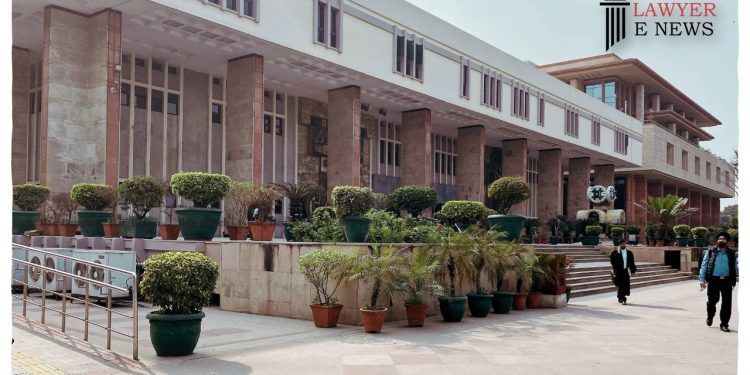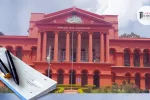Without consent, recording or tapping calls violates privacy- Delhi HC

The Delhi High Court on Thursday declared that secretly recording calls or tapping phones is against the right to privacy.
“The facets of privacy include right of non-interference with the individual body, protection of personal information, and autonomy over personal decisions,” the Justice Jasmeet Singh panel ruled.
On May 19 and May 20, 2022, the Ministry of Home Affairs sent two communications to the Central Bureau of Investigation regarding M/s. SH. and ISEC SERVICES PVT. LTD. John Pandey.
Between 2009 and 2017, ISEC SERVICES PVT. LTD. unlawfully intercepted MTNL lines at the National Stock Exchange and recorded calls made by several NSE officials.
The NSE officials were then given access to the transcript of these calls by ISEC. It is claimed that no other phone lines but NSE’s were tracked or recorded.
According to Section 5 of the Indian Telegraph Act of 1885, ISEC did not obtain the relevant authority’s approval before conducting the telephone monitoring, nor did it obtain the knowledge or consent of NSE personnel.
The bench was asked to consider the following:
Whether the petitioner’s bail application could be approved or not.
The bench stated that it is a violation of privacy to tap phone lines or record calls without permission. Calls should not be recorded, as required by the Constitution’s Article 21 protection of privacy. Such conduct can only be done with the consent of the individuals involved; otherwise, it would violate their fundamental right to privacy.
The High Court ruled that “ISEC’s recording or tapping of phone lines was not a State action. The right to not have one’s body interfered with, the protection of one’s personal information, and the freedom to make decisions for oneself are some of the aspects of privacy. When it comes to recording phone lines, consent is crucial, a factor that both NSE and ISEC ignored. However, I need not worry about this further because in the application, I am only addressing the applicant’s bail application and not the quashing petition.
“The facets of privacy include right of non-interference with the individual body, protection of personal information, and autonomy over personal decisions,” the Justice Jasmeet Singh panel ruled.
On May 19 and May 20, 2022, the Ministry of Home Affairs sent two communications to the Central Bureau of Investigation regarding M/s. SH. and ISEC SERVICES PVT. LTD. John Pandey.
Between 2009 and 2017, ISEC SERVICES PVT. LTD. unlawfully intercepted MTNL lines at the National Stock Exchange and recorded calls made by several NSE officials.
The NSE officials were then given access to the transcript of these calls by ISEC. It is claimed that no other phone lines but NSE’s were tracked or recorded.
According to Section 5 of the Indian Telegraph Act of 1885, ISEC did not obtain the relevant authority’s approval before conducting the telephone monitoring, nor did it obtain the knowledge or consent of NSE personnel.
The bench was asked to consider the following:
Whether the petitioner’s bail application could be approved or not.
The bench stated that it is a violation of privacy to tap phone lines or record calls without permission. Calls should not be recorded, as required by the Constitution’s Article 21 protection of privacy. Such conduct can only be done with the consent of the individuals involved; otherwise, it would violate their fundamental right to privacy.
The High Court ruled that “ISEC’s recording or tapping of phone lines was not a State action. The right to not have one’s body interfered with, the protection of one’s personal information, and the freedom to make decisions for oneself are some of the aspects of privacy. When it comes to recording phone lines, consent is crucial, a factor that both NSE and ISEC ignored. However, I need not worry about this further because in the application, I am only addressing the applicant’s bail application and not the quashing petition.
Sanjay Pandey
vs.
Directorate of Enforcement






